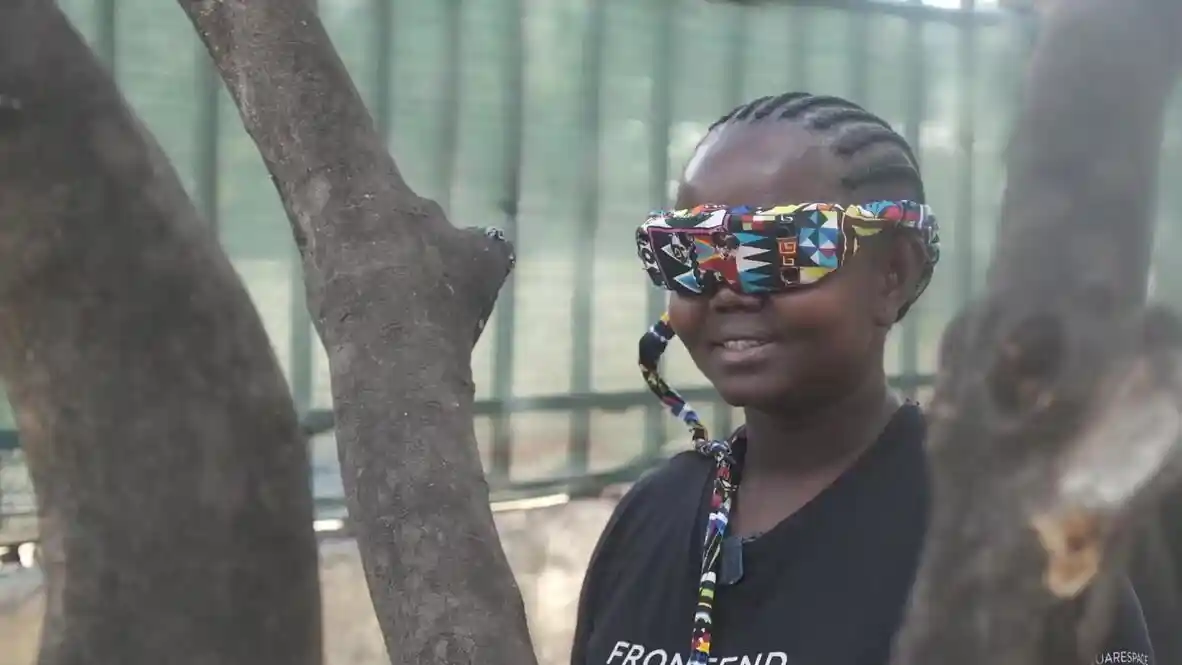In a groundbreaking innovation, a young Mozambican engineer is revolutionizing navigation for the visually impaired with smart glasses designed to detect obstacles and provide haptic feedback. Joao Rego, an electronic engineering student from Matola, has launched Vision Hope, a startup that offers a newfound sense of independence and safety for individuals struggling with vision loss.
The device, developed by Rego in 2022, consists of specialized glasses connected to a pouch containing a battery, GPS, and controllers. Using advanced sensors, the glasses detect objects and hazards in the user’s path, converting the information into gentle vibrations that alert them to potential collisions. The technology allows users to navigate their surroundings with greater confidence and reduced reliance on traditional aids like canes or sighted guides.
Footage showcasing the glasses in action depicts a woman with a visual impairment walking confidently indoors, guided by the discreet vibrations. "I can walk normally, without any difficulties," she says, explaining how the glasses detected a nearby tree and prevented a collision. This testimonial highlights the transformative potential of Rego's invention in enhancing the quality of life for people with visual impairments.
The genesis of Vision Hope came when Rego was selected as one of the 15 winners of the prestigious Jovem Creativo (Creative Youth) contest in Mozambique. "There were more than 4,000 candidates, and 15 winners were selected in three categories. And I was one of the winners for the Technological Innovation category," he proudly recalls. This recognition served as a crucial catalyst, providing Rego with the resources and motivation to develop his prototype into a viable product.
The attention to detail in the design is remarkable. The pouch that powers the device houses over 60 cables, all meticulously insulated with colorful capulana cloth, a traditional Mozambican fabric. This not only provides protection but also adds a unique cultural element to the technology.
From a simple prototype, Rego has taken the crucial step of patenting the smart glasses, safeguarding the intellectual property within Mozambique. This proactive measure ensures that his innovation can be developed and scaled up within the country, creating opportunities for local manufacturing and employment.
Rego's vision extends beyond the immediate impact on individual users. He aims to scale up production, utilizing recycled materials to make the smart glasses more accessible across Mozambique and potentially beyond. His commitment to affordability and sustainability underscores his dedication to creating a truly impactful and inclusive solution for the visually impaired community.
Vision Hope represents more than just a technological advancement; it embodies the power of innovation to empower individuals and improve lives. The story is from Viory.




